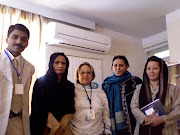President Obama's efforts to achieve a comprehensive peace agreement between Israel and the Arab states, including a Palestinian state, received a much appreciated, if surprising, boost with the awarding of the Nobel peace prize to the US president. It's fair to assume that the Nobel prize committee is hoping that the award will promote Obama's diplomatic efforts across a range of issues.
President Obama said he considered the award support for American leadership on behalf of international aspirations and "as a means to give momentum to a set of causes". He also made it clear that a top agenda item, along with nuclear non-proliferation and climate change, is achieving peace for Israelis and Palestinians. In fact, it was the only conflict he mentioned by name, noting: "We must all do our part to resolve those conflicts that have caused so much pain and hardship over so many years, and that effort must include an unwavering commitment that finally realises the rights of all Israelis and Palestinians to live in peace and security in nations of their own."
As in his UN general assembly speech last month, where the president devoted 559 words out of 5000, more than on any other issue, to ending the occupation and achieving a comprehensive peace, Obama again made it clear that this conflict is central to his vision for a transformed Middle East.
The Israeli and Palestinian public will no doubt be skeptical, and understandably so. Events on the ground continue to move in the opposite direction and have even begun to spiral back towards violent confrontation, as evidenced by Friday's clashes in occupied East Jerusalem and outside Ramallah. Yet on both sides polling consistently shows the desire for a very different, more peaceful future. Obama's Nobel prize, and his highlighting of Israeli-Palestinian peace in responding, provides an injection of that most precious of commodities: hope.
The Israeli president and Hamas leaders both welcomed the announcement: Shimon Perez with a typically poetic flourish – "You gave us a licence to dream and act in a noble direction." Hamas senior official Ahmed Yousef with the more down-to-earth, "[w]e know he is somebody different from past leaders who supported Israel economically and militarily." The Gaza-based Palestinian prime minister Ismail Haniyeh added for good measure, "We are in need of actions, not sayings…."
What is fascinating is that even hardened foes from both sides of the divide see in President Obama a potential positive game-changer. Given the realities today, it is not reasonable to expect the parties to generate a solution of their own volition. Israelis and Palestinians both have dysfunctional politics, and suffer too great an asymmetry in power to be able to successfully conclude bilateral negotiations. American leadership has become the essential ingredient to delivering a way out of this conflict. And that requires presidential will and determination.
Certainly a part of the Nobel award was an acknowledgement of what Barack Obama's election has already achieved in embracing a global agenda of engagement and partnership, in doing more to rekindle hope for a better world than any other event this past year, and yes – frankly – in not being George Bush. But this was also an anticipatory or aspirational peace prize – front and center of the anticipation is Israeli-Palestinian peace. From day one in office, President Obama has made achieving a two-state solution a priority, appointing a special envoy to the region and setting out expectations in his remarkable Cairo speech.
This nudge of encouragement from Oslo comes at an important moment, when a sense of lost momentum was beginning to set in. The Nobel committee is signalling that it too is placing its hopes in the new American president. Other supportive, international interventions will not doubt be needed along the way.
The world should enthusiastically and constructively line up behind President Obama's goal of ending this conflict.
Acknowledging the role Obama's leadership will need to play is a recognition not only of the two sides' inability to end this on their own. It also recognises that unlike in almost any other conflict, the US in a way supports and has significant leverage over both sides of this divide. And President Obama individually has the commensurate moral weight to complement America's sole superpower status.
Such expectations, embellished with Friday's Nobel announcement, can be daunting – but they can also help fortify and mobilise the presidential determination and will needed to get this done.
Monday, October 12, 2009
Subscribe to:
Post Comments (Atom)












No comments:
Post a Comment